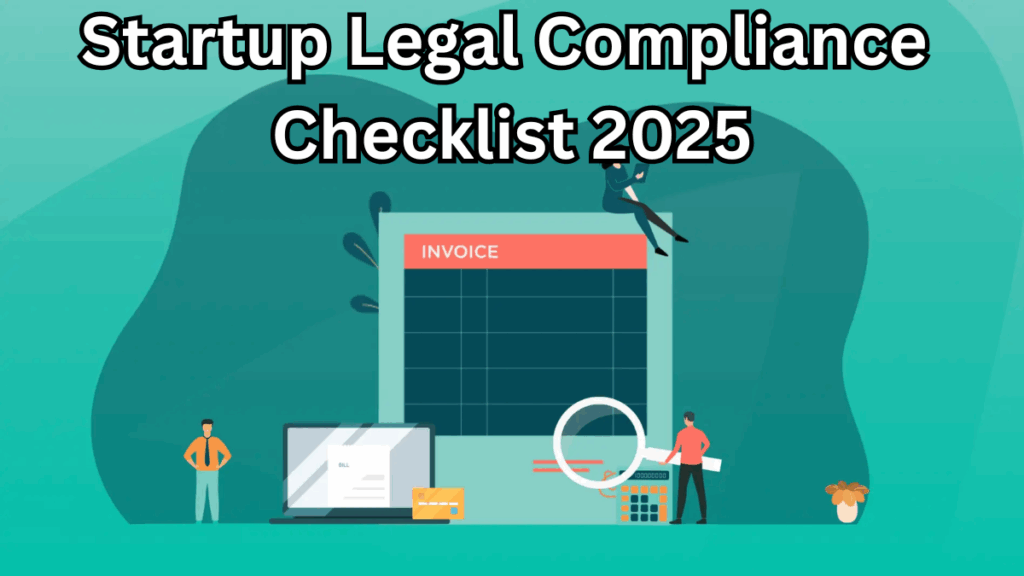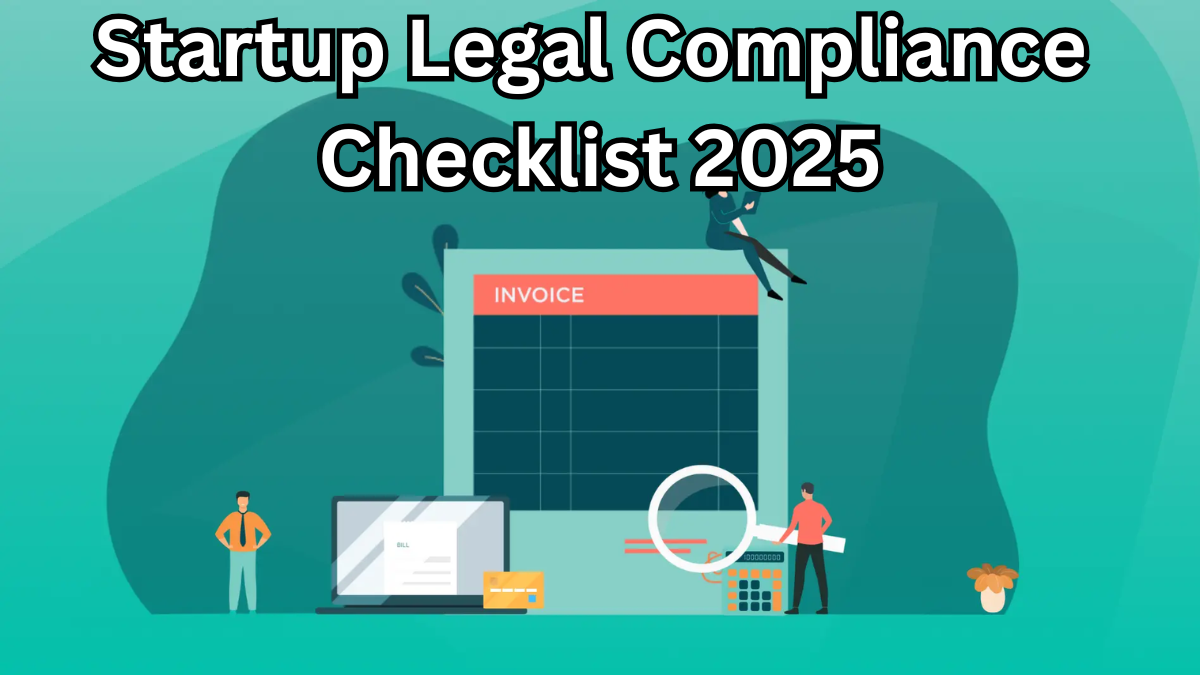The landscape for startups in 2025 is evolving fast — and so are the laws that govern them. For founders and entrepreneurs, understanding the Startup Legal Compliance 2025 requirements is no longer optional — it’s essential. With the introduction of new business rules, tighter enforcement, and digital oversight tools, even a minor legal misstep could result in penalties, blocked funding, or delayed launches.
Gone are the days when a startup could “figure things out later.” Today’s investor, regulator, and even customer expects every emerging business to operate transparently and within legal boundaries from day one. Whether you’re building a tech platform, launching a D2C brand, or scaling a SaaS product, your compliance foundation must be rock solid.
This guide gives founders a clear breakdown of what they must do to stay legally safe, scalable, and investor-ready in 2025.

Why Startup Compliance Matters More in 2025
Increased global scrutiny, rising data protection laws, and real-time tracking by tax authorities make 2025 a turning point for startup compliance. Governments are streamlining the registration process — but they’re also enhancing monitoring systems.
The Startup Legal Compliance 2025 framework introduces reforms aimed at:
-
Simplifying incorporation and tax registrations
-
Mandating digital KYC for all stakeholders
-
Tightening data privacy and cybersecurity policies
-
Expanding GST filing and audit frequency
-
Linking compliance status to public business ratings
These new business rules aren’t just paperwork — they directly impact funding eligibility, partnerships, hiring, and product rollouts. Founders must treat legal compliance like product-market fit: a core business asset.
Startup Legal Checklist: Key Requirements in 2025
Every startup, whether bootstrapped or VC-backed, must fulfill a minimum compliance checklist to remain operational. Here’s a summary of the must-haves:
Compliance Area |
Requirement (2025) |
Notes |
|---|---|---|
Business Registration |
ROC filing + MSME Udyam Reg. |
Mandatory within 30 days of ops |
Tax Compliance |
GST + PAN + TDS setup |
Auto-linked to startup portal |
Founder Identification |
Aadhaar-based e-KYC for all directors |
Verified by MCA & bank APIs |
Data Protection |
Privacy Policy + Cyber Security Audit |
Required for all tech platforms |
ESOP & Equity Records |
Digital cap table with MCA validation |
For startups with >2 founders |
Annual Compliance |
Financial audit + DIR-3 KYC |
Due by March 31 annually |
These steps ensure that the startup is legally registered, transparent in governance, and protected from financial or legal risk.
Common Legal Mistakes Startups Make
Despite the clarity of Startup Legal Compliance 2025 rules, many founders still make critical legal mistakes. These can delay funding, result in penalties, or even lead to legal disputes with co-founders or vendors.
Common errors include:
-
Using generic templates for shareholder or employment agreements
-
Ignoring IP protection or not registering brand trademarks
-
Failing to comply with data privacy obligations (especially if handling user data)
-
Missing MCA or GST filing deadlines
-
Misclassifying employees vs contractors to avoid taxes
As new business rules evolve, these mistakes carry higher risks. Founders should consult legal professionals, use verified templates, and regularly audit their startup’s compliance checklist.
Pro Tips for Staying Legally Compliant
Staying compliant in 2025 requires more than just ticking boxes — it needs systems. Here are some startup-tested tips to help founders stay ahead of legal obligations:
-
Automate tax filings and KYC renewals with verified platforms
-
Maintain a real-time digital equity register to track shares and ESOPs
-
Use a dedicated compliance calendar tool to avoid missed deadlines
-
Conduct quarterly legal audits to ensure no rule has been overlooked
-
Hire legal counsel or use affordable legal SaaS tools for contract generation
Following these tips not only meets Startup Legal Compliance 2025 rules but also builds investor confidence — especially during due diligence.
Conclusion
The Startup Legal Compliance 2025 framework reflects a new era where being legally sound is a competitive advantage. With new business rules covering everything from tax to cybersecurity, founders must adopt a proactive, organized approach to compliance. Doing so protects your venture, reassures stakeholders, and keeps your startup agile in a fast-changing regulatory climate. In 2025, legal compliance isn’t just a back-office task — it’s a front-line business strategy.
FAQs
What are the key changes in Startup Legal Compliance 2025?
Mandatory KYC for founders, stricter data privacy audits, and digitized equity reporting are among the most critical updates.
When should a startup register for GST in 2025?
Startups must register for GST if annual revenue crosses ₹20 lakh or earlier if offering digital services.
Do all startups need a privacy policy?
Yes. Any platform collecting user data is now required to publish a privacy policy and undergo a cybersecurity audit.
Are ESOPs mandatory to report?
If you issue ESOPs, digital reporting to MCA and updated cap tables are now mandatory under new business rules.
Can I use free online contracts?
Avoid generic templates. Use verified legal documents tailored to your sector and reviewed by a professional.
Click here to learn more
